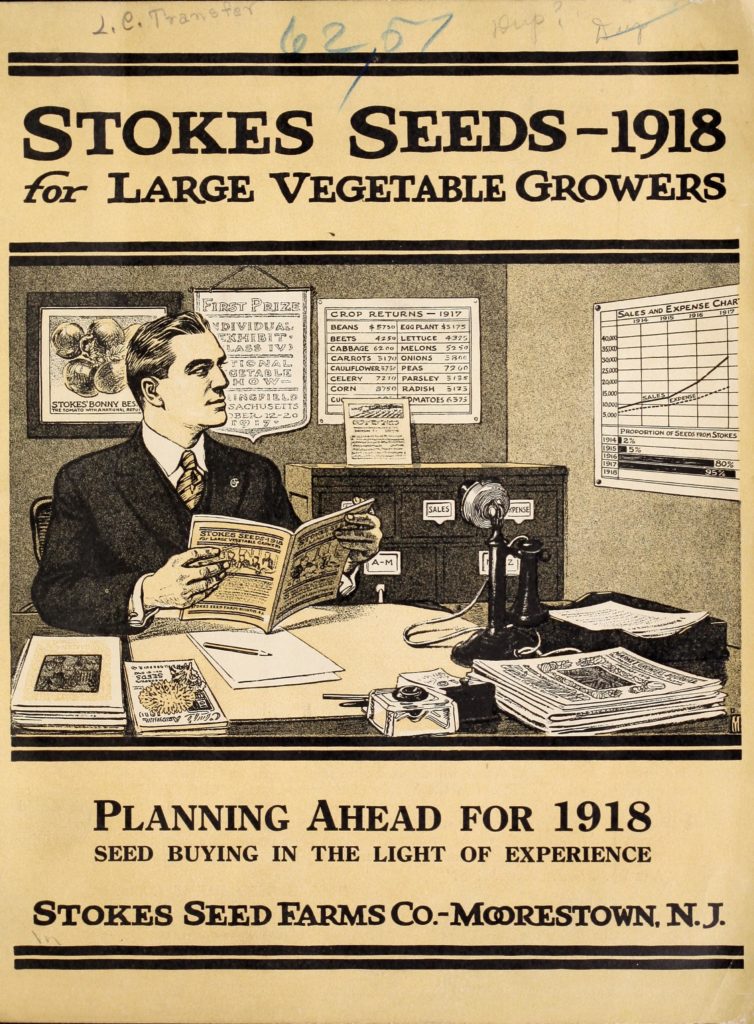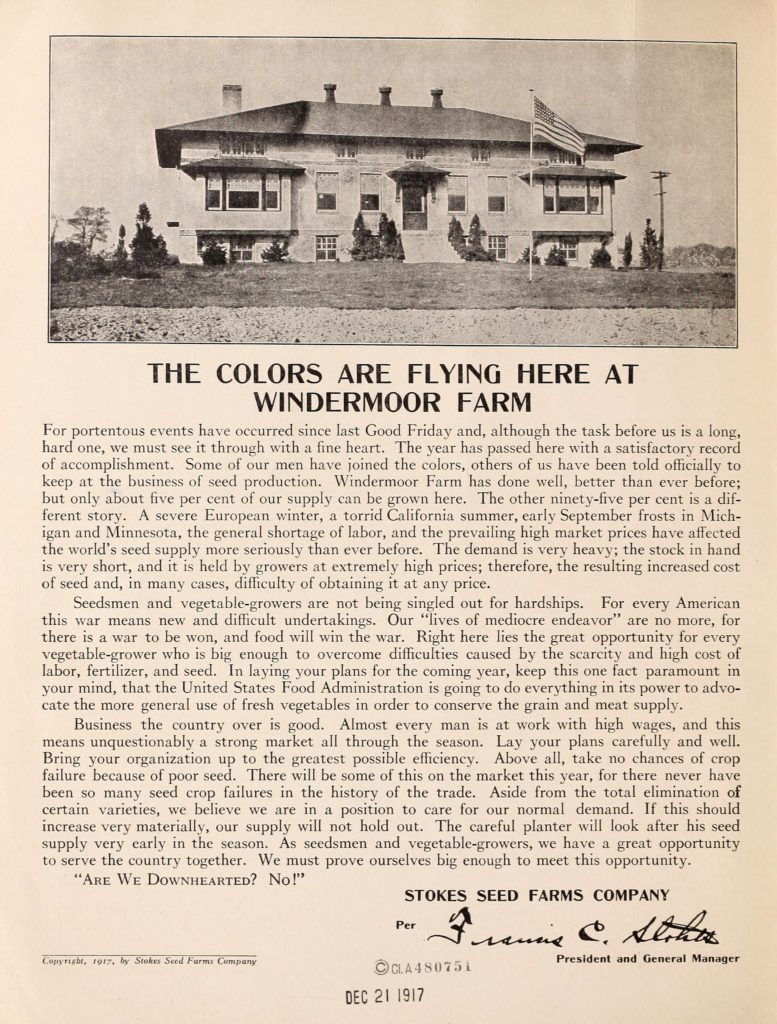Archive.org has a host of old seed catalogs (from mid-19th to mid-20th Century) available in many formats and on a host of topics. I happened across a few in my Pinterest feed and gone completely down the rabbit hole in this treasure trove of information. Sure some ideas might be out of date, but you never know what you might find when you explore these catalogs. I’ll be sharing more catalogs as I find them in the coming weeks. –Douglas
Historical Seed Catalogs: Stokes seeds – 1918 for large vegetable growers – 22 in a series
Download in Text, PDF, Single Page JPG, TORRENT from Archive.org
THE COLORS ARE FLYING HERE AT WINDERMOOR FARM
For portentous events have occurred since last Good Friday and, although the task before us is a long, hard one, we must see it through with a fine heart. The year has passed here with a satisfactory record of accomplishment. Some of our men have joined the colors, others of us have been told officially to keep at the business of seed production. Windermoor Farm has done well, better than ever before; but only about five per cent of our supply can be grown here. The other ninety-five per cent is a dif- ferent story. A severe European winter, a torrid California summer, early September frosts in Mich- igan and Minnesota, the general shortage of labor, and the prevailing high market prices have affected the world’s seed supply more seriously than ever before. The demand is very heavy; the stock in hand is very short, and it is held by growers at extremely high prices; therefore, the resulting increased cost of seed and, in many cases, difficulty of obtaining it at any price. Seedsmen and vegetable-growers are not being singled out for hardships. For every American this war means new and difficult undertakings. Our “lives of mediocre endeavor” are no more, for there is a war to be won, and food will win the war. Right here lies the great opportunity for every vegetable-grower who is big enough to overcome difficulties caused by the scarcity and high cost of labor, fertilizer, and seed. In laying your plans for the coming year, keep this one fact paramount in your mind, that the United States Food Administration is going to do everything in its power to advo- cate the more general use of fresh vegetables in order to conserve the grain and meat supply. Business the country over is good.
Almost every man is at work with high wages, and this means unquestionably a strong market all through the season. Lay your plans carefully and well. Bring your organization up to the greatest possible efficiency. Above all, take no chances of crop failure because of poor seed. There will be some of this on the market this year, for there never have been so many seed crop failures in the history of the trade. Aside from the total elimination of certain varieties, we believe we are in a position to care for our normal demand. If this should increase very materially, our supply will not hold out. The careful planter will look after his seed supply very early in the season. As seedsmen and vegetable-growers, we have a great opportunity to serve the country together. We must prove ourselves big enough to meet this opportunity. “Are We Downhearted? No!”
STOKES SEED FARMS COMPANY
* A portion of each sale from Amazon.com directly supports our blogs
** Many of these books may be available from your local library. Check it out!
† Available from the LA Public Library











